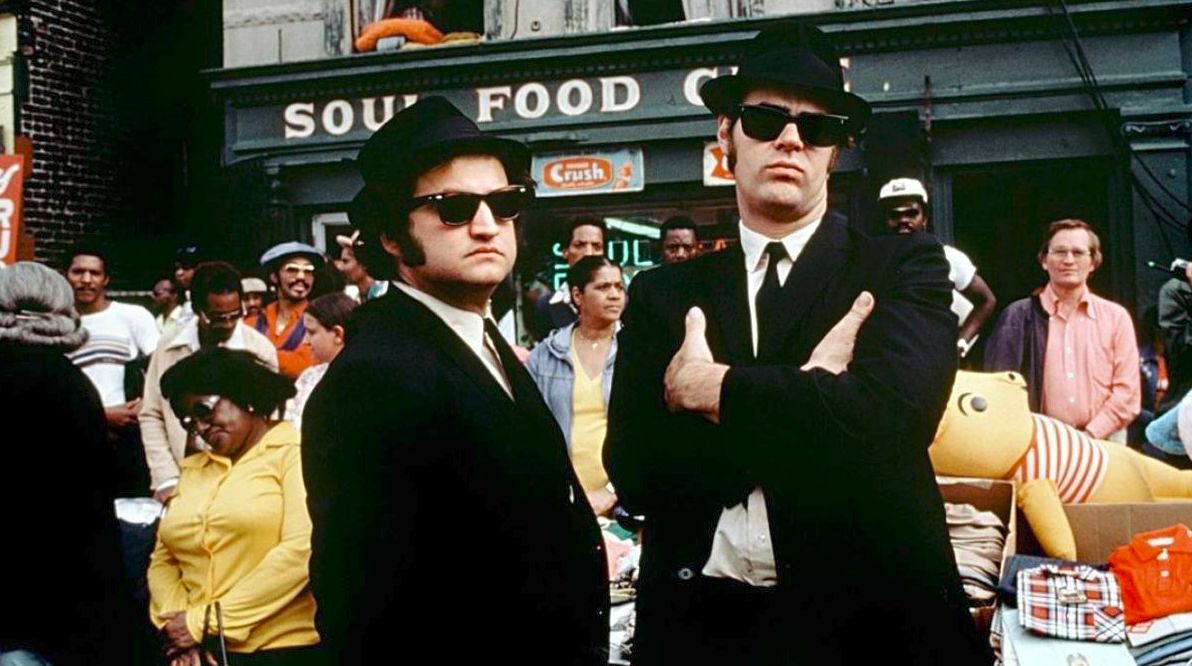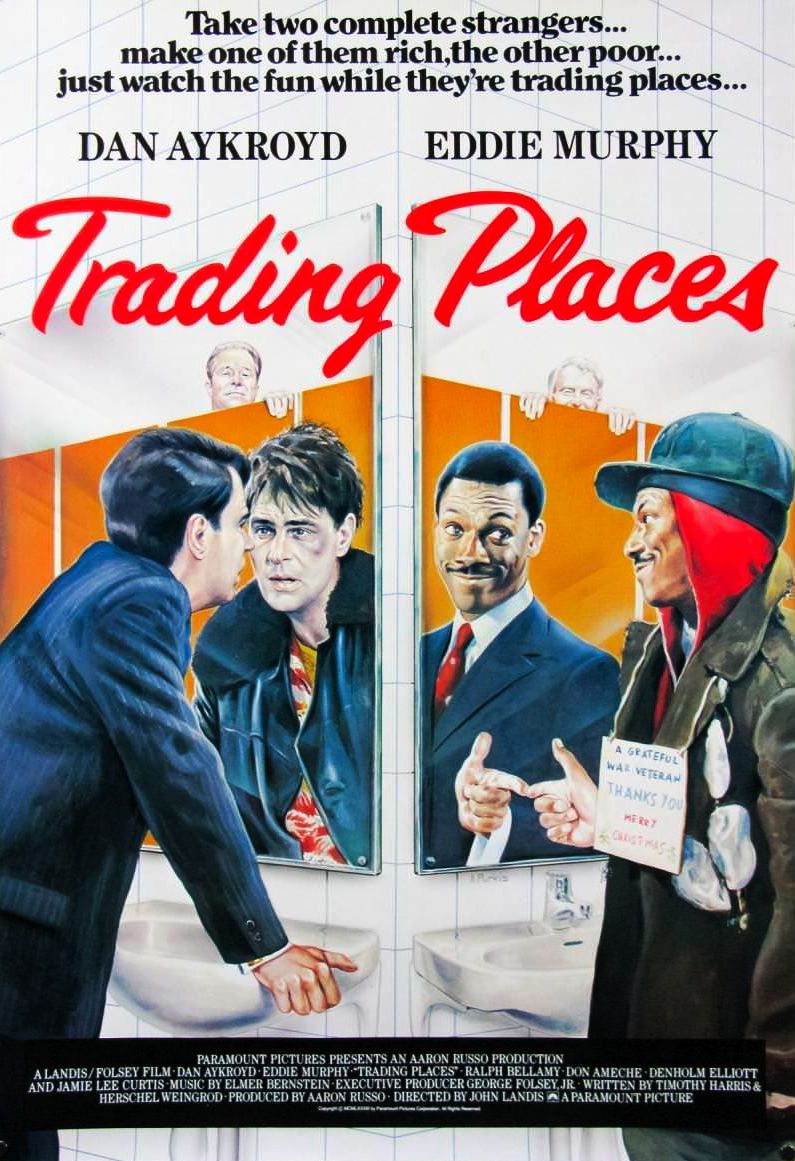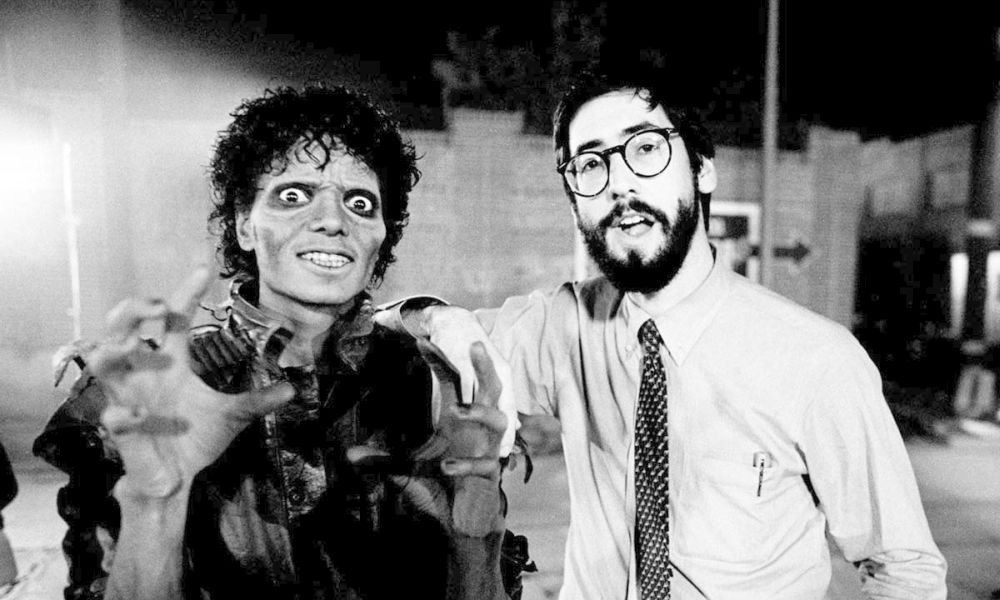"As a director, Landis is an unreconstructed genre-blender. The scattershot, channel-surfing approach of The Kentucky Fried Movie reflected his postmodern fondness for the mixing of (sometimes inappropriately paired) genres and styles, and his biggest hits would tap into the same television-inflected hyperactivity and condensed attention span in his audience." - Martin Flanagan (Contemporary North American Film Directors, 2002)
John Landis
Director / Screenwriter / Producer
(1950- ) Born August 3, Chicago, Illinois, USA
(1950- ) Born August 3, Chicago, Illinois, USA
Key Production Country: USA
Key Genres: Comedy, Horror, Parody/Spoof, Adventure Comedy, Farce, Comedy of Manners, Horror Comedy, Anarchic Comedy, Absurd Comedy, Science Fiction
Key Collaborators: George Folsey Jr. (Producer/Editor), Malcolm Campbell (Editor), Elmer Bernstein (Composer), Dan Aykroyd (Leading Actor/Screenwriter), Robert Paynter (Cinematographer), Ira Newborn (Composer), John J. Lloyd (Production Designer), Frank Oz (Character Actor), John Belushi (Leading Actor), Eddie Murphy (Leading Actor), Chevy Chase (Leading Actor), Robert K. Weiss (Producer)
Key Genres: Comedy, Horror, Parody/Spoof, Adventure Comedy, Farce, Comedy of Manners, Horror Comedy, Anarchic Comedy, Absurd Comedy, Science Fiction
Key Collaborators: George Folsey Jr. (Producer/Editor), Malcolm Campbell (Editor), Elmer Bernstein (Composer), Dan Aykroyd (Leading Actor/Screenwriter), Robert Paynter (Cinematographer), Ira Newborn (Composer), John J. Lloyd (Production Designer), Frank Oz (Character Actor), John Belushi (Leading Actor), Eddie Murphy (Leading Actor), Chevy Chase (Leading Actor), Robert K. Weiss (Producer)
"Solid, sometimes inspired technician whose yen for broad physical comedy reflects his former life as a stuntman. Although Landis has proved adept at both social satire (Trading Places 1983) and sci-fi pyrotechnics (The Twilight Zone 1983), he seems most at home with the raucous goings-on of films such as National Lampoon's Animal House (1978) and The Blues Brothers (1980). His most widely viewed work is undoubtedly the promotional video for Michael Jackson's Thriller album." - The Virgin International Encyclopedia of Film, 1992
"Specialist in loud, lavish, expensively mounted comedies starring some of the country's biggest talents. A former stuntman, he has a predilection for slapstick, as displayed in his debut directing effort, the shaggy gorilla B-movie parody Schlock (1971), which he also wrote and acted in." - Leonard Maltin's Movie Encyclopedia, 1995

The Blues Brothers (1980)
"One of the more successful comedy directors of recent years, John Landis has spawned numerous imitators, proffering a lazy blend of spoof and slapstick aimed at a predominantly young audience. His is an erratic talent, most rewarding on the rare occasions when it is applied to a polished script and disciplined performers." - Geoff Andrew (The Film Handbook, 1989)
"His most famous films were made in the often overlooked post-movie brat period of American Cinema, the New New Hollywood, and mixed comedy and horror in ways that seem more influential now than their forbearers, who receive most of the credit. Because of their popular success, and their origins in trash comic books and dirty-seat monster movies, the films Landis made never received their proper critical respect. There is a genuine, out-in-the-open, love of cinema on display in every frame of his work that is hard to ignore, an infectious buzz behind the camera that makes you think this is a man who could do nothing else but be involved in the movies." - Craig Hubert (BOMB Magazine, 2011)
"His film's are notable for their manic and insane humour which is saved from being self-indulgent by Landis' intelligent understanding of film genres and how they can be manipulated to good effect. Employed as a mail boy at 20th Century-Fox he graduated, through perseverance and enthusiasm, to production assistant on Kelly's Heroes (1970)." - The Illustrated Who's Who of the Cinema, 1983
"Through his work on National Lampoon’s Animal House and Twilight Zone: The Movie, John Landis has the dual distinction of being co-creator of one of Hollywood’s most successful genres, and being associated with one of Hollywood’s most embarrassing catastrophes. His credits include such successes as Trading Places, The Blues Brothers, and Coming to America, but he will probably be best remembered for directing the first real gross-out comedy and for his association with the deaths of Vic Morrow and two Asian children for which he was charged with involuntary manslaughter." - Bob Sullivan (International Dictionary of Films and Filmmakers, 2000)
"Quiet as it's kept, John Landis must be counted among the more important mainstream Hollywood filmmakers to come to prominence in the late 1970s and early 80s. Though enormously successful and influential, Landis rarely turns up in film reference books - an indication of the continuing critical disrespect that greets youth-oriented comedy. Part of the same post-countercultural movement as the laugh-a-minute screenwriting team of Zucker-Abrahams-Zucker, the creative staff of the original Saturday Night Live and National Lampoon, Landis translated this liberating sensibility to the big screen with such uproarious features as The Kentucky Fried Movie (1977), National Lampoon's Animal House (1978) and The Blues Brothers (1980)." - Kent Greene (The Hollywood.com Guide to Film Directors, 2004)
"Merchant of broad, noisy, generally profitable farce, John Landis makes movies that are rather less than the sum of their big-budget set pieces and special effects - take away Rick Baker's still-impressive wolf make-up from An American Werewolf in London (1981), for instance, and you're not left with much of a film… Landis's best and probably most widely seen film is his long-form video for Michael Jackson's Thriller, in which Baker's make-up effects are again the indispensable co-stars. Otherwise, the director cranked out a frayed string of forgettable 1980s comedies." - Jessica Winter (The Rough Guide to Film, 2007)
Selected Filmography
{{row.titlelong}}
GF Greatest Films ranking (★ Top 1000 ● Top 2500)
21C 21st Century ranking (☆ Top 1000)
R Jonathan Rosenbaum
21C 21st Century ranking (☆ Top 1000)
R Jonathan Rosenbaum
John Landis / Favourite Films
The Awful Truth (1937) Leo McCarey, The Godfather Part II (1974) Francis Ford Coppola, His Girl Friday (1940) Howard Hawks, It's a Gift (1934) Norman Z. McLeod, King Kong (1933) Merian C. Cooper & Ernest B. Schoedsack, The Man Who Shot Liberty Valance (1962) John Ford, The Miracle of Morgan's Creek (1944) Preston Sturges, Pinocchio (1940) Ben Sharpsteen & Hamilton Luske, Psycho (1960) Alfred Hitchcock, Throne of Blood (1957) Akira Kurosawa.
Source: Sight & Sound (2022)
The Awful Truth (1937) Leo McCarey, The Godfather Part II (1974) Francis Ford Coppola, His Girl Friday (1940) Howard Hawks, It's a Gift (1934) Norman Z. McLeod, King Kong (1933) Merian C. Cooper & Ernest B. Schoedsack, The Man Who Shot Liberty Valance (1962) John Ford, The Miracle of Morgan's Creek (1944) Preston Sturges, Pinocchio (1940) Ben Sharpsteen & Hamilton Luske, Psycho (1960) Alfred Hitchcock, Throne of Blood (1957) Akira Kurosawa.
Source: Sight & Sound (2022)
John Landis / Fan Club
Edgar Wright, Alain Chabat, Neil Marshall, Ruben Fleischer, Richard Curtis, David Wain, Leonard Maltin.
Edgar Wright, Alain Chabat, Neil Marshall, Ruben Fleischer, Richard Curtis, David Wain, Leonard Maltin.
"Fan Club"
These film critics/filmmakers have, on multiple occasions, selected this director’s work within film ballots/lists that they have submitted.
These film critics/filmmakers have, on multiple occasions, selected this director’s work within film ballots/lists that they have submitted.


